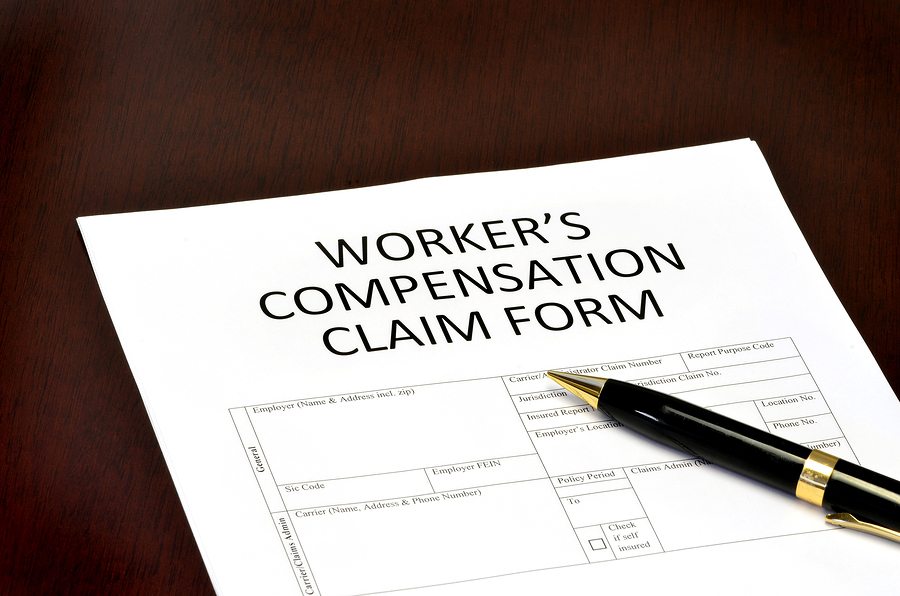Hundreds of thousands of employees are injured at work every year in Pennsylvania. In 2014 alone, Pennsylvania employers reported nearly 70,000 work-related sprains and strains to the Department of Labor, along with roughly 31,500 contusions, 27,600 cuts and lacerations, 7,350 broken bones, and 3,500 burns — and those are just the most common workplace injuries, as a workers compensation lawyer in Philadelphia, PA can explain. But what about workplace injuries that don’t actually occur in the workplace? Is it possible to get worker’s comp for an off-site accident that occurs in Pennsylvania?

With a few exceptions, almost every business in the state of Pennsylvania carries worker’s compensation insurance. Due to workers compensation coverage, it is typically not possible for an employee to sue an employer for an injury at work, or for wrongful death, unless the injury was deliberately inflicted or resulted from a defective product.
If the injury was caused by a malfunctioning product, such as a defective power tool, you should talk to an experienced product liability lawyer about the possibility of bringing a lawsuit. Otherwise, a workers compensation lawyer can help you through the process of filing a worker’s comp claim in Pennsylvania.
Workers compensation is intended for workers who are injured in the course of performing their job duties, regardless of where those injuries occur. For example, a person who gets into a car accident while driving from their office to an out-of-town business meeting on behalf of the company could be eligible for workers comp because they were in the process of performing a job-related task when the accident occurred.
Past court rulings can help shed some light on the subject of compensation for off-site injuries. For instance, in 2003 in Sekulski v. Worker’s Compensation Appeal Board (Indy Associates), the Commonwealth Court of Pennsylvania affirmed the decision of the Worker’s Compensation Appeal Board (WCAB), which previously found that claimant David Sekulski, a maintenance worker for Indy Associates, did not have a worker’s compensation claim after being beaten by an assailant. The decision was affirmed by the Commonwealth Court because Sekulski was “‘on call’ and reachable by employer but engaged in non-work-related activities off of the employer’s premises.”
Further explaining its decision to affirm the Board’s denial of Sekulski’s claim, the Court wrote, “[A]n ‘on call,’ non-traveling employee… carrying a pager and remaining in the area in order to respond timely to work communications, is not considered to have sustained an injury in the course of employment unless he [or she] is actively engaged in work-related activities at the time of injury. To hold otherwise,” the Court noted, “would impose liability on an employer for the safety of its employees 24 hours a day regardless of whether the employee is actually furthering its business or affairs when injured.”
An earlier case decided by the Commonwealth Court in 1990, Heverly v. WCAB (Ship N Shore), produced a similar outcome. In Heverly, the Commonwealth Court affirmed the Board’s decision to deny compensation, because the employee — who had a slip and fall accident involving a pothole — sustained the injury while in the process of returning to work in order to retrieve a forgotten pair of glasses, not to perform any of her job duties or otherwise further her employer’s interests.
On the other hand, consider a Bucks County case from Motion Control Industries v. WCAB, 145 Pa. Commw. 399 (1992) in which the victim’s employer, Motion Control Industries, unsuccessfully fought the awarding of death benefits to a murdered employee’s wife. In Motion Control, the Commonwealth Court of Pennsylvania affirmed the Board’s decision to grant death benefits to decedent Paul Buck’s wife and claimant, Tina Buck, based on the following finding:
“Because the parties in this case agreed that decedent was killed in the Employer’s parking lot only minutes after he left work, [the] decedent was definitively on the Employer’s premises at the time of his death, and was there a reasonable time after his work period had ended. Consequently, we find that the Board did not err in determining that decedent was furthering his Employer’s interests at the time of his death.”
In Heverly, more than half an hour elapsed between the time Deloris Heverly left her office, arrived home, and returned, at which point she was finally injured. But in Motion Control, Paul Buck was still in the process of leaving work for the day. Unlike Heverly, Buck was at the location where he was shot directly because of his job duties. Had he not gone to work that day, he would not have needed to cross the parking lot to reach his car and go home, and would not have been shot, as a personal injury lawyer in Philadelphia, PA knows.

Getting compensated for an on the job injury isn’t always as straightforward as it seems, especially if the injury occurred outside the building where you work. However, representation by a skilled and experienced personal injury lawyer can greatly improve your chances of getting the benefits you deserve. If you or your spouse was injured on the job, call The Wieand Law Firm, LLC at (888) 789-3161 to set up a free legal consultation today.
*Disclaimer: This article is for informational purposes and is not legal advice. The Wieand Law Firm, LLC is based in Philadelphia, PA, and proud to serve clients throughout Pennsylvania and New Jersey.*